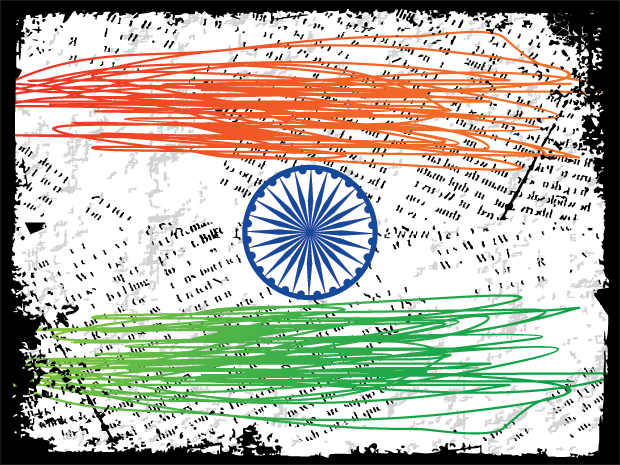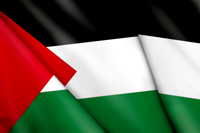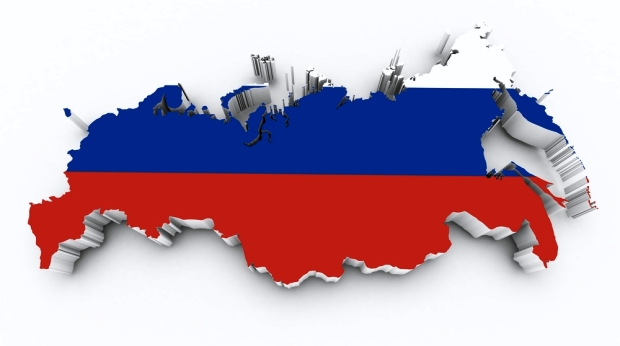10 Sep 2013 | India, Politics and Society, Religion and Culture
 In an unprecedented move, the heads of India’s three major media regulators, all retired judges, sat on a single platform with the current Minister for Information and Broadcasting, Manish Tewari, to discuss the way forward for media regulation.
In an unprecedented move, the heads of India’s three major media regulators, all retired judges, sat on a single platform with the current Minister for Information and Broadcasting, Manish Tewari, to discuss the way forward for media regulation.
The Indian media industry, including both information and general entertainment channels, are often in the news for violations of industry ethics codes. Entertainment channels often air inappropriate content and exceed the number of advertising minutes per hour as prescribed by the Telecom Regulatory Authority of India. News channels, too, have been in the limelight because of the paid news phenomenon, which has been the subject of a Parliament report, and their complicated ownership structures that belie a deep connection between business and politicians.
While around 100 of India’s 800 channels broadcast news, only about half of them formally come under any industry association, although they account for 80% of viewership. The larger industry associations are the News Broadcasting Standards Association (NBSA), the Broadcast Contents Complaints Council (BCCC) and the Press Council of India (PCI).
The panel explored whether an independent statutory body is needed to act as regulator – opened up an interesting discussion. Justice Markandey Katju, Chairman, PCI, Justice A.P. Shah, Chairperson, BCCC, Justice R.V. Raveendran, Chairperson, NBSA, shared the stage with Tewari.
The Indian media industry itself has been unequivocal in stating that it is capable of self regulation. However, the heads of the currently regulatory bodies pointed out that despite the current system of self regulation, many channels simply opt out of voluntary membership of these associations if they do not want to follows its rules or pay fines. It is clear that regulators in India are of the view that even if self-regulation is the way forward, it cannot be voluntary. The lack of professionalism in journalism, ‘trials by media’, and the urban slant of national news channels have led to skewed and uneven growth in the Indian media industry.
The panel was divided by questions over the exact form self-regulation should take in the future. While some dominant voices such as Katju’s believed that media persons are best suited to regulate their peers, others felt this structure only hurts the regulators’ credibility. However, Katju also suggested that there be only one body to regulate all media, unlike the current system. Others backed a statutory self-regulating body to replace the current system.
A few essential points emerged as consensus – the regulator should have a real power to punish and fine; adopt global standards; enforce universal membership.
There was also a call to the industry to not hide behind a faulty ratings system as an excuse to broadcast lower quality content. In fact, the Tewari made an appeal for the industry to no longer stand in the way of reforming India’s system of television ratings system, which the government believes will help create an alternative business model. Tewari also added that while the regulatory bodies are currently concentrating on television programming, however, a new or reformed regulatory body needs to keep pace with technological changes, especially the internet. The ministry has publicly said it would prefer a model of self-regulation rather than have the government step in.
In the end, there was a call for editors and owners of media houses not to confuse their duties to the citizens and shareholders.
What is clear is that Indian media, by its own admission, has entered a phase where even much of the industry has come to realize that some amount of universal regulation is needed to weed out much of the malpractice in the industry. However, in reforming business practices, including ownership (such as cross media ownership, as reported by Index) or curbing paid news, it is essential that freedom of expression is not trampled.
A new line of thought has been slowly emerging in India: that the media freedoms allowed by constitutional guarantee extends to the content of the news and entertainment programming, but not to the illegal and monopolistic manner in which the media industry itself operates. It is inevitable that with the proliferation of the internet and complete digitisation of cable services, regulatory bodies will have a bigger job on their hands.
Some commentators feel this means an independent statutory body to regulate the media – like the very effective Election Commission of India – is needed, and it is expected that a private member’s bill will be introduced in Parliament in the next session.
This article was originally published on 10 Sept 2013 at indexoncensorship.org
10 Sep 2013 | China, Digital Freedom, News and features

(Photo illustration: Shutterstock)
A new Harvard study for the first time provides an inside look at the complex system of Chinese social media censorship. The report confirms a little-known theory: while messages referencing direct political action are banned, criticism of the communist leadership is often allowed.
To get behind the scenes of censorship, the researchers created their own social media website and signed up to 100 existing ones. These included ‘Chinese Twitter’ Sina Weibo (weibo.com) and Tencent Weibo (t.qq.com) which combined have over 500 million users, as well as blogging platforms that represent 87% of blog posts on the web.
They found that messages are either published immediately and reviewed by a censor within 24 hours, or automatically held for review before publication based on keywords used in the text. One list of such keywords, offered by software companies to clients running social media sites, included ‘go on the streets’, ‘Dalai Lama’ and ‘corruption’.
Sixty-six of the sites tested reviewed at least some of the messages; 41% of the 1,200 messages they posted were reviewed, and 63% of those did not make it online.
But in what may come as a surprise to some, the study found that criticism of leaders and the state are often allowed. The messages that are cracked down on are those related to ‘collective action potential’ – civil unrest that might stir citizens to act.
The report suggest authorities might even welcome such criticism, because it alerts them that an official is incompetent or corrupt and allows them to replace him or her, ‘maintaining stability, and the system can then be seen as responsive.’
The study also found that private company censors are more likely to censor after publication, as they are under less direct government control than state censors. But the extra care taken by state censors can backfire. Pre-publishing reviews are often based on keywords, like corruption, that can be used in both pro- and anti-government messages. In other words, even government praise is restricted by censorship.
This article was originally published on 10 Sept 2013 at indexoncensorship.org
9 Sep 2013 | Digital Freedom, Palestine

(Photo: Shutterstock)
The internet is a vital platform for Palestinians to express themselves, but web access and targeting of social media users, bloggers and journalists remain big challenges, according to a new report from the Palestinian Center for Development and Media Freedom (MADA).
“The internet and the broad tools of communication made available by the social networks gained great importance specifically in the lives of Palestinians in Gaza, who have been under firm siege by the Israeli occupation forces since 2006, and for the Palestinian people in general due to the dispersion they have experienced since the Nakba of 1984 [sic], and now they can communicate with their relatives and friends in the different parts of the world quickly and immediately”, said Mr. Mousa Rimawi, MADA’s general director.
The report states that 67% of Palestinians polled by MADA in 2012 believe Facebook contributes to the promotion of freedom of expression.
However, the latest figures quoted show that internet penetration in Palestine is at 32.1%; 34.3% in the West Bank and 27.9% in the Gaza Strip. Lack of infrastructure due to the Israeli occupation and high service charges are the biggest blocks to access, the report finds.
The report also highlighted threats to journalists working in Palestine. Examples included the imprisonment of Al Quds TV reporter Mamdouh Hamamrah for posting an image deemed to be offensive to President Mahmoud Abbas, and the arrest of journalist Esmat Abdel Khalek for a comment she made on Facebook demanding an end to the Palestinian Authority.
“Violations against journalists and citizens simply for expressing their opinions lead to the strengthening of self-censorship, which is incompatible with the idea of having the social platforms that is suppose to make it easier for citizens and journalists to express their opinions”, said Riham Abu Aita, a MADA spokesperson.
The article was edited on 30 September at 12.00 pm to acknowledge an error in the quote from Mr. Mousa Rimawi, which gives the year of the Nakba as 1984, it took place in 1948.
9 Sep 2013 | Religion and Culture, Russia

A criminal case has been opened against American band the Bloodhound Gang in Russia, after bassist Jared Hannegan shoved a Russian flag down his trousers at a concert in Ukraine.
Russian Investigative Committee spokesman Vladimir Markin said: “A criminal case has been opened against James Moyer, Jared Victor Hennegan and other unidentified persons on counts of inciting enmity and humiliating human dignity.”
The band are accused of desecration of the Russian flag, which is illegal under Article 329 of the Russian Criminal Code and is punishable by up to a year in prison.
The incident took place on 31 July during the band’s gig in Odessa, Ukraine. They have already been banned from entering Ukraine for five years after a similar stunt involving the Ukrainian flag at an earlier concert in Kiev. They faced charges of hooliganism and desecration of state symbols.
The band’s concert at the Kubana festival in the Krasnodar region of Russia was cancelled by Culture Minister Vladimir Medinsky. They were also attacked in the lounge at Russia’s Anapa airport by local activists.
“I find the actions of Bloodhound Gang disgusting. I also condemn the act of violence against them,” American ambassador Michael McFaul tweeted at the time.
“Any artist, who wants to come and visit us, should understand that it is not just appropriate to respect the laws of their own country when they are at home, but Russian laws when they are in Russia,” State Duma Foreign Affairs Committee Chairman Alexei Pushkov said in a statement at the time.
Hannegan has reportedly apologised for the incident, explaining that they didn’t mean to cause offense and that it was simply part of a band tradition that items thrown on stage go through the bassist’s trousers.
 In an unprecedented move, the heads of India’s three major media regulators, all retired judges, sat on a single platform with the current Minister for Information and Broadcasting, Manish Tewari, to discuss the way forward for media regulation.
In an unprecedented move, the heads of India’s three major media regulators, all retired judges, sat on a single platform with the current Minister for Information and Broadcasting, Manish Tewari, to discuss the way forward for media regulation.


